Inoculation with AstraZeneca Vaccine begins in Croatia
ZAGREB, 9 February 2021 - The first inoculations with AstraZeneca's COVID-19 vaccine in Croatia were administered in Šibenik on Tuesday, with ten persons receiving that vaccine while another ten were given Moderna's jabs during immunisation organised in the coastal city's health centre.
All 20 persons were older than 65 and patients with chronic conditions.
Four-hundred doses of the AstraZeneca and 200 of the Moderna vaccine arrived at the Šibenik-Knin County Public Health Institute yesterday and were distributed to local health centres.
Local epidemiologist Ankica Parat Baljkas said the Pfizer, AstraZeneca and Moderna vaccines were all "quality vaccines," adding that the AstraZeneca vaccine offered "60 to 70% protection from getting sick, but in 100% of cases it protects from serious illness and death, as do all other vaccines."
Until now Croats have been inoculated against COVID-19 with the Pfizer and Moderna vaccines.
The first batch of vaccines developed by Moderna arrived in Croatia in mid-January, while Zagreb took over the first 9,750 doses of the Pfizer-BioNTech COVID-19 vaccine on 26 December.
HDZ Mayoral Candidate in Split is Party Branch Chief Vice Mihanović
ZAGREB, 9 February 2021 - The leadership of the Croatian Democratic Union's (HDZ) branch in Split on Tuesday announced that branch president Vice Mihanović would be the HDZ mayoral candidate in that second biggest Croatian city.
Mihanović, 48, the head of the Port of Split, succeeded Petar Škorić at the helm of the HDZ branch in Split during intra-party elections held in late November.
The incumbent mayor of Split, HDZ official Andro Krstulovic Opara, 53, said in early November that he would not stand for another term as mayor in local elections next May, citing his health reasons. In late January 2018, Krstulovic Opara, was diagnosed with melanoma.
A press release issued by the local HDZ party on Tuesday quoted Mihanović as saying that he would be a mayor who would live for Split and who would not allow divisions among residents based on their place of birth.
"If you want a showman in the post of mayor, do not vote for me. If you seek a bookkeeper or tradesman, pick other candidates. If you want a man with a penchant for ideology and World War Two, do not count on me," Mihanović said, adding that he offers a concrete and feasible agenda for the City of Split.
Croatia Ranks 38th Among 79 Countries on Huawei's GCI 2020
ZAGREB, 9 February 2021 - Croatia ranks 38th among 79 countries on Huawei's 2020 Global Connectivity Index (GCI) for its ICT infrastructure quality and digitisation degree and remains in the group of adopter countries that are in a phase of digitisation between those technologically advanced and those just starting with it.
Huawei's Croatia office on Tuesday released a report on the 2020 GCI, which ranks 79 countries according to their performance in 40 indicators that track the impact of ICT on a nation’s economy, digital competitiveness and future growth.
Last year Croatia climbed up one place and the greatest improvement was achieved in availability, accessibility and security of its broadband Internet access as well as the use of artificial intelligence and the Internet of things, Huawei Croatia underscored.
"The GCI is a unique quantitative assessment that comprehensively and objectively evaluates connectivity from both a national and industrial perspective" which Huawei launched in 2014 and which presents the situation and annual progress of digitisation "in 79 countries which account for 95 percent of global GDP.
Based on the GCI methodology, Croatia collected 51 points of a possible 120 and ranked 38th. The forerunners on the ladder are the USA with 87 points, followed by Singapore, Switzerland, Sweden, Denmark, Finland, the Netherlands and the United Kingdom.
Growing Demand for Properties on Outskirts of Zagreb and in Lika Region
ZAGREB, 9 February 2021 - Fleeing the natural disasters that hit Croatia last year, many people have sought refuge outside cities and moved to nearby smaller communities, a survey conducted by the Crozilla real estate website shows.
Residents of Zagreb, fearing new earthquakes and the coronavirus pandemic, are moving to suburbs or outlying communities, and many of them are opting for the largely rural Lika-Senj County.
Until recently, properties in those areas were often sold for next to nothing, but negative circumstances, such as the earthquakes and the coronavirus pandemic, have made such places highly sought after, Crozilla said in a press release on Tuesday.
Compared with 2019, last year saw an increase in the number of visitors to the website searching for properties in Lika-Senj County. "During the quarantine, people were trapped in their flats and wanted to get out of Zagreb at least temporarily," the vice-president of the Real Estate Business Association at the Croatian Chamber of Commerce, Ivan Bižanović, was quoted as saying. He added that the county was also "well filled" with people from the coastal cities of Rijeka, Split, Zadar and Šibenik.
Bižanović noted that many people were now turning to rural areas and agriculture, planting gardens and working the land. He said he expected this trend to continue this year as well as there was growing demand for small houses in villages.
Davor Filipović as HDZ Candidate for Zagreb Mayor - Unofficial
ZAGREB, 9 February 2021 - Davor Filipović will be the Croatian Democratic Union (HDZ) candidate in the race for the position of mayor of Zagreb at the coming local election, unofficial sources from HDZ's Zagreb branch said on Tuesday.
Confirmation of Filipović's candidature is expected at an online session of the party's Zagreb branch on Wednesday.
Davor Filipović (36) was born in Sarajevo. He obtained his PhD at the Zagreb Faculty of Economics and is a lecturer in the Organisation and Management Department. He also studied at Fairleigh Dickinson University in New Jersey.
He is an HDZ councillor in the Zagreb City Assembly and the chairman of the finance and budget committee. He is chairman of the Supervisory Board of the Hrvatske Šume forest management company.
Filipović is also the secretary of HDZ's Zagreb branch and last year he accused incumbent Mayor Milan Bandić of was leading the city into bankruptcy.
Filipović emerged as HDZ's candidate for mayor of Zagreb after negotiations with the temporary director of the Reconstruction Fund, Damir Vanđelić, fell through.
Prime Minister and HDZ leader Andrej Plenković said on Monday that the party's presidency and national council had agreed on who the party's candidate for Zagreb mayor would be. He did not reveal who that was but claimed that the candidate was a "better option than Vanđelić."
City of Trogir Third in Croatia to Introduce Full Budget Transparency
February 9, 2021 – By introducing an interactive mobile application for full budget transparency, the City of Trogir will soon join the Croatian cities of Split and Bjelovar and the municipality of Omišalj and become one of the most transparent local governments in Croatia.
Together with the Science and Society Synergy Institute, the City of Trogir signed an agreement to introduce the city budget's full transparency. The contract represents the first phase of a project to create a simple and visually attractive application that would give citizens a different budget view.
With the application, citizens would have an insight into ongoing or planned projects, the performance of previous budgets and the budget for next year, or the supplementary budget for the current year. The application would provide an overview of the current budget. At the same time, additional options will compare the plan with the performance and a comparison with previous years' budgets.
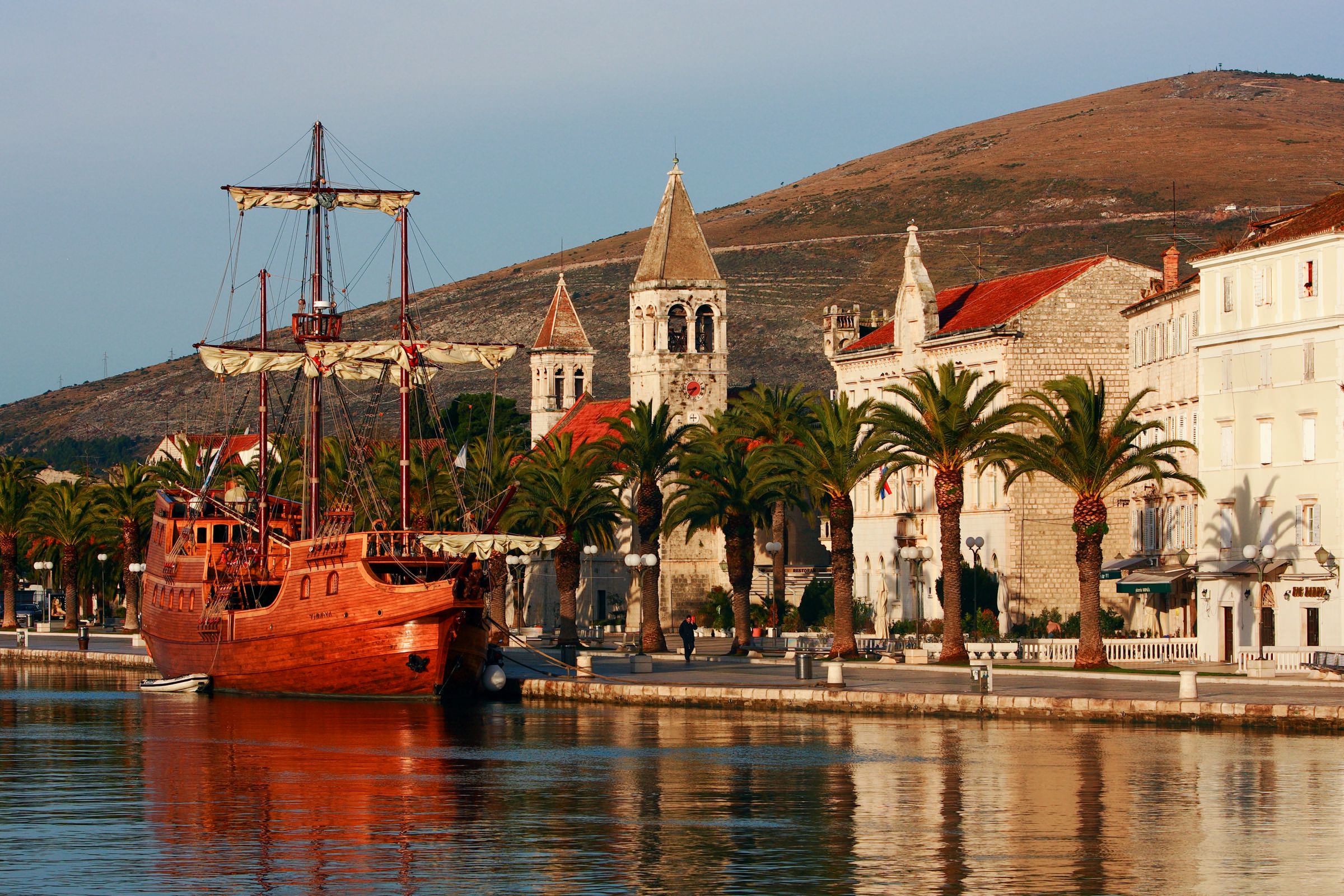
Trogir / Photo: Romulić and Stojčić
Trogir to become the most desirable small town on the coast
The City of Trogir wants to bring concrete budget items closer to the citizens through clear and simple numerical indicators and through aggregate indicators that are difficult to understand. They want to educate and sensitize citizens for certain types of strategically important projects. In other words, citizens would get an insight into what exactly their money is spent on.
"Through this project, we continue to introduce smart practices. The goal is to show how city money is managed and involve citizens in the City Administration's work as much as possible. So far, we have done this through participatory budgeting, 'And you are asked!', a project through which citizens themselves directly decide on spending part of the budget money. Last year, the Institute of Public Finance gave us grade five for transparency for the first time. We have also published an online register of city property, and with this application, we are going a step further," said Mayor of Trogir Ante Bilić.
The average assessment of Croatian cities' transparency for 2020 is 4.5, compared to the previous 2019 when it was 4.3. In 2019, Trogir received a grade of 4, and in 2020, thanks to the publication of all five city documents required for insight into transparency, a rate of 5. The number of Croatian cities of excellence increased from 65 in 2019 to as many as 87 in 2020, a positive trend.
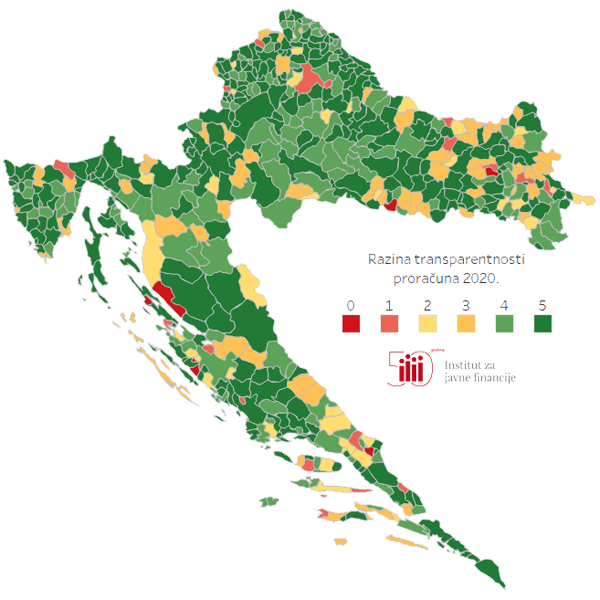
Budget transparency of Croatian cities and municipalities / Institute of Public Finance
"Budget transparency is our obligation and one part of the smart city strategy we will develop this year. This is a necessary level of development planning by which we want to make Trogir the most desirable small town on the coast in every sense. Precisely such projects by which we raise democratic standards are a guarantee that we will never end up in the problems we were in three years ago," said Bilić.
Striving for complete city transparency
This interactive visualization of the budget will be available to citizens in two months. It will be implemented by the Science and Society Synergy Institute based in Čakovec, headed by Vuk Vuković.
"The application we will create for Trogir offers an in-depth and visually attractive presentation of all revenues and expenditures up to the fourth level of the budget, according to the functional and economic classification. This data, the functional classification up to the fourth level of spending, has not been given to city councilors at budget hearings who receive budget expenditures up to a maximum of the third level. For example, the fourth level means that you can enter within each city's budget user – kindergartens, schools, museums, libraries – and see who spent how much on salaries, maintenance, what they bought, etc. The third level gives only the total amount received by which user, without going into details. With this presentation, citizens have a more detailed insight into city spending than city politicians," Vuković explained.
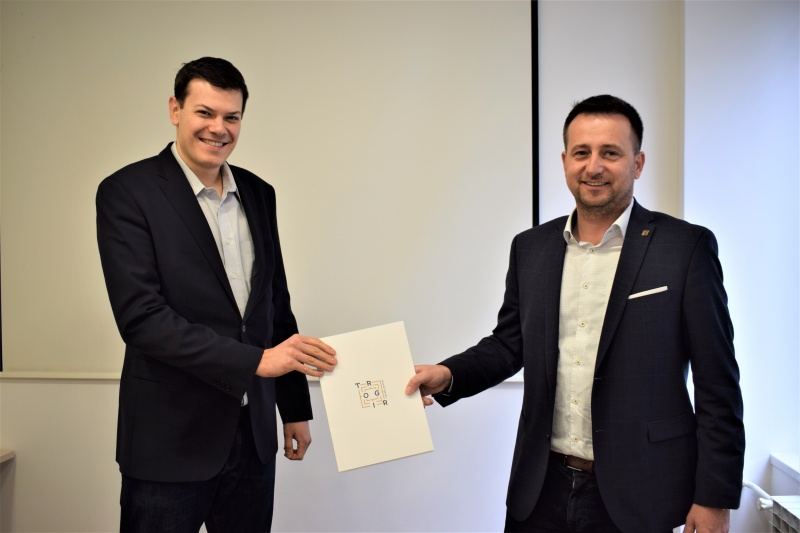
Ante Bilić and Vuk Vuković / Photo: Trogir.hr
Following an interactive budget guide, the next step will be a detailed overview of all budget accounts. Citizens would have an insight into each transaction from the budget, from public procurement to entertainment expenses. Then there will be complete transparency of the city towards users.
Bjelovar was the first to introduce transparency application
Thus, Trogir will be one of only three cities in Croatia and Southeast Europe with a completely transparent budget. A similar practice has been introduced by the Croatian cities of Bjelovar and Split and the municipality of Omišalj, which also introduced applications for insight into the city budget. The City of Bjelovar presented a similar application in February 2019. Vuković also helped them, making them the first most transparent city in Croatia, for which they were awarded that year.
"Bjelovar has thus embarked on a unique undertaking in Croatia and this part of Europe, which is to raise transparency to a level that has not been introduced in any public authority so far, to raise the quality of the City Administration's work and strengthen public confidence," said Vuković at the time, as reported from Bjelovar.
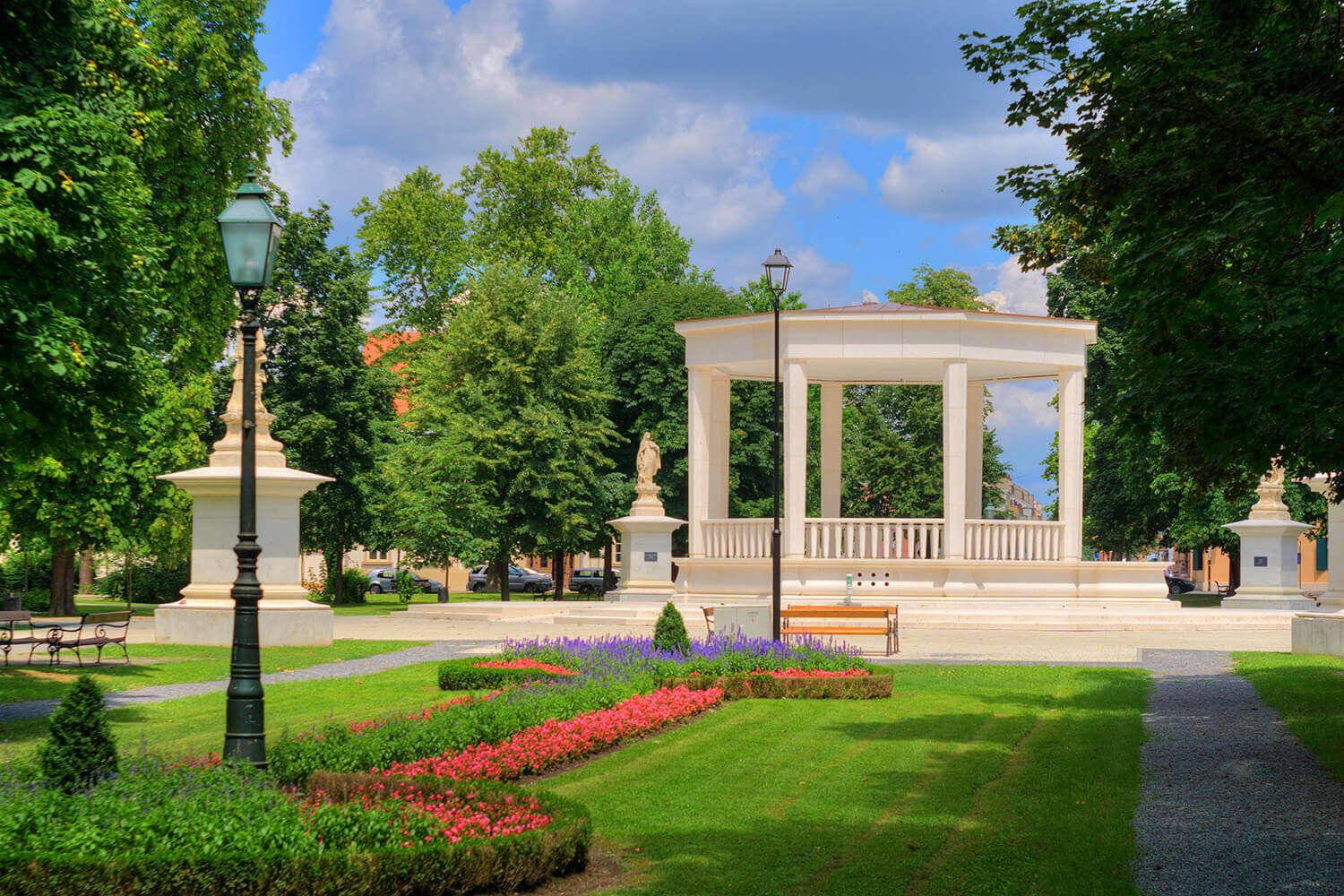
Bjelovar Pavilion / Photo: Bjelovar.hr
Bjelovar's positive example was followed by the municipality of Omišalj, which introduced the transparency application at the end of March 2020. The largest Croatian city on the coast – Split – also decided to do so, and neighboring Trogir took over its practice.
Namely, the citizens' right to access information held by public authorities is guaranteed by the Republic of Croatia's Constitution. Therefore, in addition to the moral, the public authority also has a legal duty to provide information on public money spending. However, while in developed democracies such transparency is considered the standard and, for example, all individual transactions from the US federal budget of 1.5 billion dollars are available to the public through an interactive Internet search engine, in Croatia it has never existed before, nor are public authorities considered this possibility.
This trend seems to be changing in Croatia. The transparency of Croatian cities is presented in an interactive map of the Institute of Public Finance.
To read more about lifestyle in Croatia, follow TCN's dedicated page.
London to Zagreb COVID-19 Trip Report, February 8, 2021
February the 9th, 2021 - Just how does a trip from London to Zagreb look during pandemic-dominated times? I got to experience it yesterday as I made the journey and it was a mixed bag.
At the end of December, I went to the UK to spend Christmas there and deal with some urgent and pressing matters which unfortunately couldn't wait. I had a bad feeling about it, but went ahead anyway as for some things, time wasn't on my side.
I left on the 20th of December on what turned out to be the very last flight (Zagreb-London) which Croatia allowed to operate between the two countries as an initial 48 hour flight ban was introduced impulsively and suddenly as the news of the new ''British variant'' of the novel coronavirus, referred to as VOC-202012/01 (also known as lineage B.1.1.7, 20I/501Y.V1), had been discovered circulating in southern Britain.
The new variant, a mutated strain, was believed to spread more quickly and efficiently, but not to cause a more severe clinical picture than the ''older version'' of the novel coronavirus. Of course, a rapidly spreading pathogen causes issues even if the symptoms remain more or less the same, as hospital capacities fill even more quickly and the strain on the healthcare system becomes even more difficult to cope with. The need for extra caution was understood.
As soon as I landed at an empty Heathrow Terminal 5, which was all but devoid of life with the exception of me, a few other stragglers and some rather bored looking staff, my phone pinged, letting me know that Croatia had joined what was then a handful of other countries to place a sudden and temporary ban on passenger transport from the United Kingdom. It was initially for a mere 48 hours. Brilliant, I thought, as I stood waiting for my case breathing in the eye-watering smell of bleach which managed to penetrate my mask.
I read Plenkovic's tweet, UK and Croatia flag emojis thrown in for good measure, and combed through the comments of disgruntled and angry people stuck on both sides of the English channel as they tore into the decision as my case and I wandered through the empty baggage reclaim area to the exit.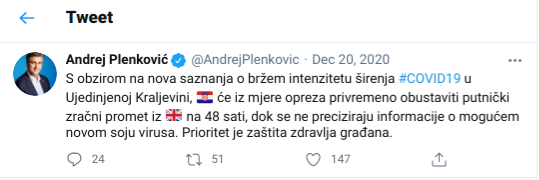
''Given the new findings about the more rapid spread of COVID-19 in the United Kingdom, we're going to temporarily end passenger transport from the UK out of caution for 48 hours, until we find out more precise information about this possible new variant of the virus. Our priority is the health of citizens''
I arrived to where I was meant to be following a journey through an empty, silent and eerie London, began my ten days of self-isolation and on the tenth day, the area I was in went into Tier 4, the then highest tier of the UK's restriction system. A few days later, the entire country went into lockdown as cases rose, with over 1000 deaths recorded per day for a while. The country with the highest death toll in Europe was continuing down a deeply unwanted path.
Fast forward a few weeks and I begin planning to return from London to Zagreb as the situation calmed in Croatia, hoping to quickly make the journey before anything else altered within the blink of an eye, as has become so commonplace since the virus emerged.
I booked a Croatia Airlines flight for the 8th of February, leaving London for Zagreb at around 17:00. At that time, people entering Croatia with a reason or those with residence or Croatian citizenship (which applied in my case) could technically enter without presenting a negative PCR test which was no older than 48 hours as long as they tested immediately upon crossing the border, went into isolation and emailed their (hopefully) negative result to the border police, an email address which was provided to such passengers upon arrival.
Of course, having a negative PCR test in hand already was the more desirable situation, and back then, no self-isolation of any kind was needed if you could present that negative result upon arrival. Still, it was pleasant to see that the Croatian authorities recognised that this demand was difficult to achieve (other countries typically ask for 72 hours), and that they were willing to cut people some slack.
That quickly altered.
The new ''British variant'' was gaining traction in southern England and forcing infection numbers to soar and the Croatian Institute of Public Health created a new list of countries. No longer was it just EEA and non EEA, but a list of countries with ''special epidemiological measures'' applied to them. On the list back then were the United Kingdom and South Africa, which had its ''own'' concerning variant, with the later addition of Brazil.
For those countries, a PCR test no older than 48 hours was needed, accompanied by self-isolation for a period of 14 days with ''test to release'' measures in place to cut the period of self-isolation short after seven days if, on the seventh day at the earliest, the person tests negative again at their own expense. This isn't obligatory and you can just end your self-isolation without any more tests after 14 days if you so wish.
The 6th of February arrived and I called to book a PCR test for that evening. I arrived to the facility and underwent the test for the fourth time since the pandemic began. I had contracted coronavirus only several months before and was aware I'd more than likely return a negative result, but I did have some doubts as I saw the swab taken out of my throat and nose and pushed into the red liquid in the test tube and sent away to the lab. Just 18 or so hours later on the 7th, my negative result arrived in the form of a text and an email.
Obstacle one was dealt with.
I went to check in online on Croatia Airlines' website, only to be hit with what is obviously an outdated and very, very poorly thought out message that ''flights are banned'' until the 15th of February from the UK to Croatia. This of course isn't true at all for essential travel and I immediately realised that it simply meant I'd have to go to the check-in desk in person upon arrival as they'd need to see a reason as to why I was travelling, and if I had a right to do so as the UK remained in lockdown with a ''stay at home'' order in place. Although I understood that, I'm not sure others who are less observant of the situation would.
Paying the price Croatia Airlines wants for a very, very basic less than two hour flight from London to Zagreb (and the same is indeed true in the other direction, which is thankfully a trip I only make twice per year) and then being hit with a ''flight ban'' message isn't really ideal. Would it be so hard to issue a message stating that online check-in simply isn't currently available rather than inciting yet more confusion? Obviously.
On the 8th, I made the journey to Heathrow and prepared myself mentally for some more potential issues. Here's where things were impressive and I have to take my hat off to Britain (which is something I do seldomly). Both its rate of vaccination (there were over 10 million people vaccinated at the time of writing this, more than twice Croatia's entire population) and its proper and efficient checks on travel seem to be second to none.
I saw a few people told they couldn't fly from London to Zagreb due to having incorrect documentation, which must have been devastating, as a staff member called me to a check-in desk.
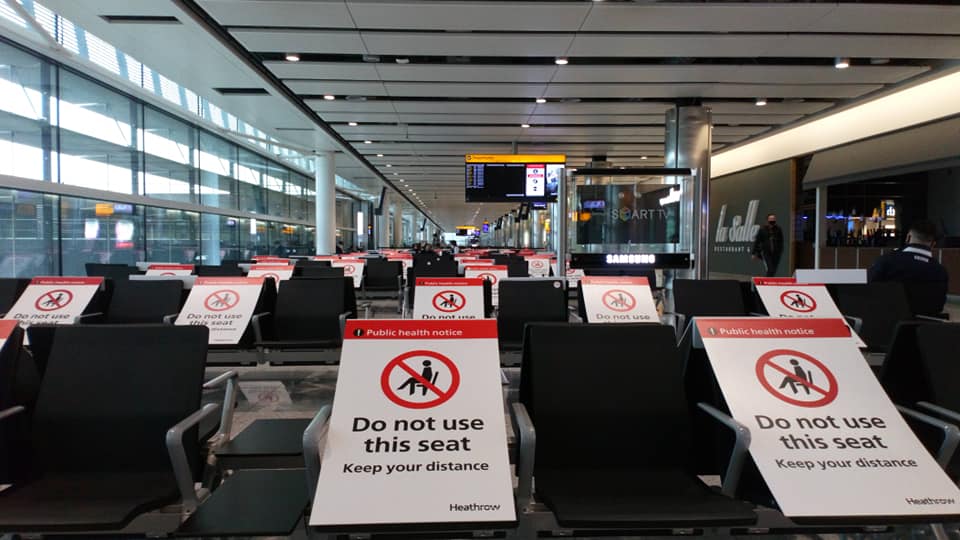
I presented a British passport and a Croatian ID card and he went to have it checked, 2 minutes later he returned saying that it was fine, sending my suitcase off to the plane as I went to the empty security. Passing through in 3 minutes (which is unheard of at Heathrow) and entering the empty departure lounge to await my flight.
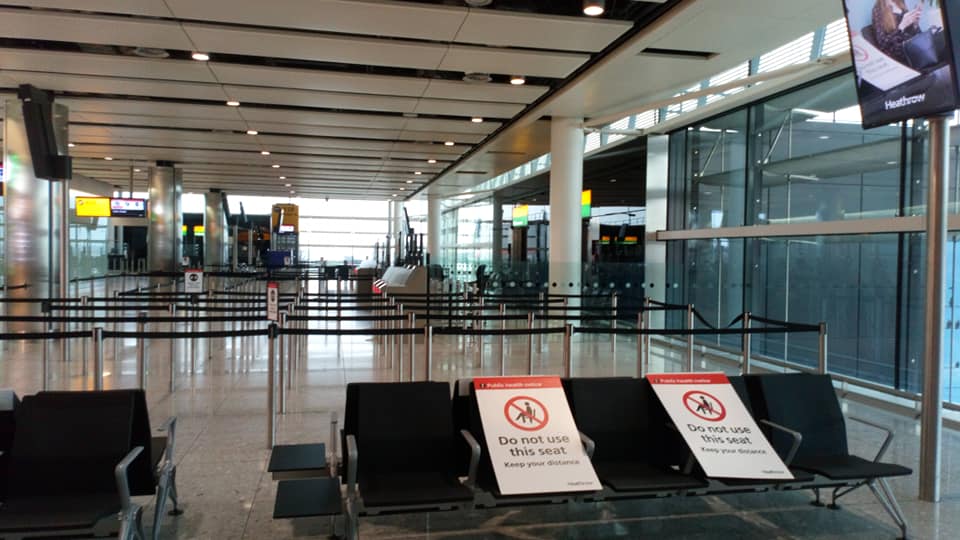
As the gate for Zagreb was announced and the handful of people boarding the plane gathered, passports, ID cards and PCR test documents in hand, staff demanded negative tests before anyone could board the flight. Each person appeared to have an issue or two as boarding staff rushed back and forth from passenger to phone, calling the authorities to ask questions which were obviously not made properly clear. Some people were convinced they didn't need a test to enter, referencing the previous rule which stated that a PCR test could instead be obtained upon arrival, which now no longer applied to anyone (regardless of their status or citizenship) coming directly from the UK. Others had expired test results as 48 hours is difficult to achieve in many places across the UK due to demand.
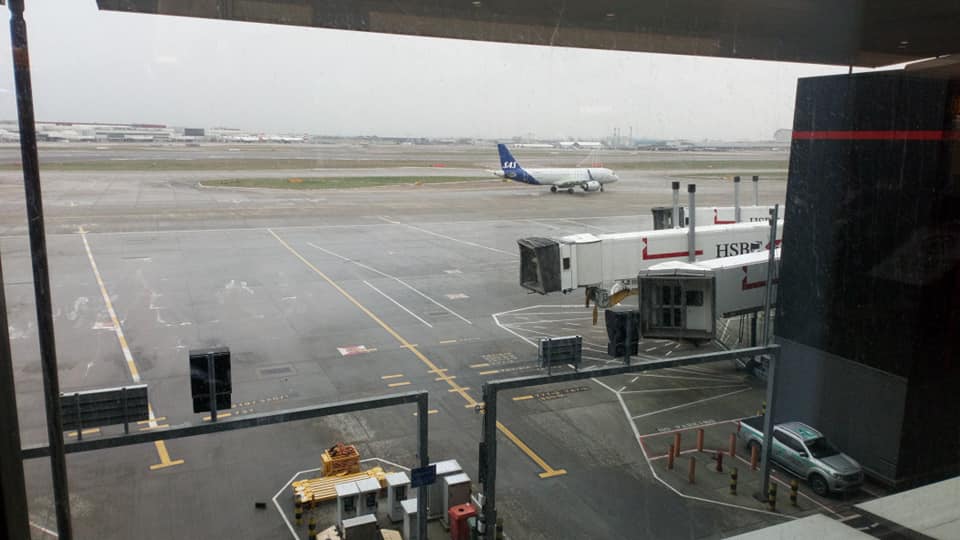
The boarding staff kept calling the authorities, heading back to passengers, back to the phone, and looking very flushed. They then asked for ''Enter Croatia'' forms which don't need to be filled in if you're a citizen or a legal resident, but the staff had to take passengers' words for that as it was indeed as clear as mud. Ah, Croatia.
The process was very long, one woman was nearly denied boarding until a phone call from the authorities allowed her to enter Croatia despite some sort of issue with her PCR test. The phone kept on ringing and Heathrow's poor staff continued to look more and more confused as rules seemed to be interpreted differently by each and every person. Ah, Croatia. Again.
The plane took off after de-icing as it was snowing in England, air stewards handed out and then took back Passenger Locator Forms, and we landed in Zagreb just under two hours later. Usually, the border procedure is fast at Zagreb Airport, regardless of how busy it is. This time, despite the relatively few people travelling, we were stuck there for an hour. Frustrated people called taxis, family and friends waiting to pick them up to apologise repeatedly as only two border police were (very slowly) facilitating entry to passengers, with the occasional appearance of one or two others who came and went of their own accord.
One policewoman struck up a conversation with me because an apparently ''fast-track smart border'' device had broken, that very device was supposed to be used by precisely those people coming from London to Zagreb that day. We spoke in Croatian as she used my passports to try to see if it would work. It didn't. She was pleasant and it passed the time a bit quicker as she complained about the new technology and joked light-heartedly about the self-isolation measures. Each and every person arriving experienced issues because of their PCR tests, but were let in following repeated documentation checks as their mandatory self-isolation was on the cards anyway.
Upon finally arriving to the competent border guard, the surprisingly smiley and cheerful man took my documents and asked for my PCR test. He appeared confused by it, despite being well intentioned, and I had to explain in Croatian what each part meant. He appeared surprised by my willingness to explain and joked that this was all so difficult to follow. His exhaustion with the rules he must keep up with showed for a second or two before his cheerfulness returned, telling me that was all fine with a slight Dalmatian twang, copying the papers I gave him and asking me if I wanted my instructions for the removal of my self-isolation measure in Croatian or English.
''Svejedno mi je'' I said. (Either of them, it doesn't matter to me), to which he provided both versions and waved me through, looking happy that his day dealing with often confused arrivals from countries with ''special epidemiological measures'' applied to them was almost over.
The 5 or 6 people left by that point in time in Zagreb Airport took their bags, sitting rather sadly on the now motionless carousel and exited, happy to remove their masks and breathe in the fresh, cold winter air outside after hours stuck in oxygen-poor queues and on planes.
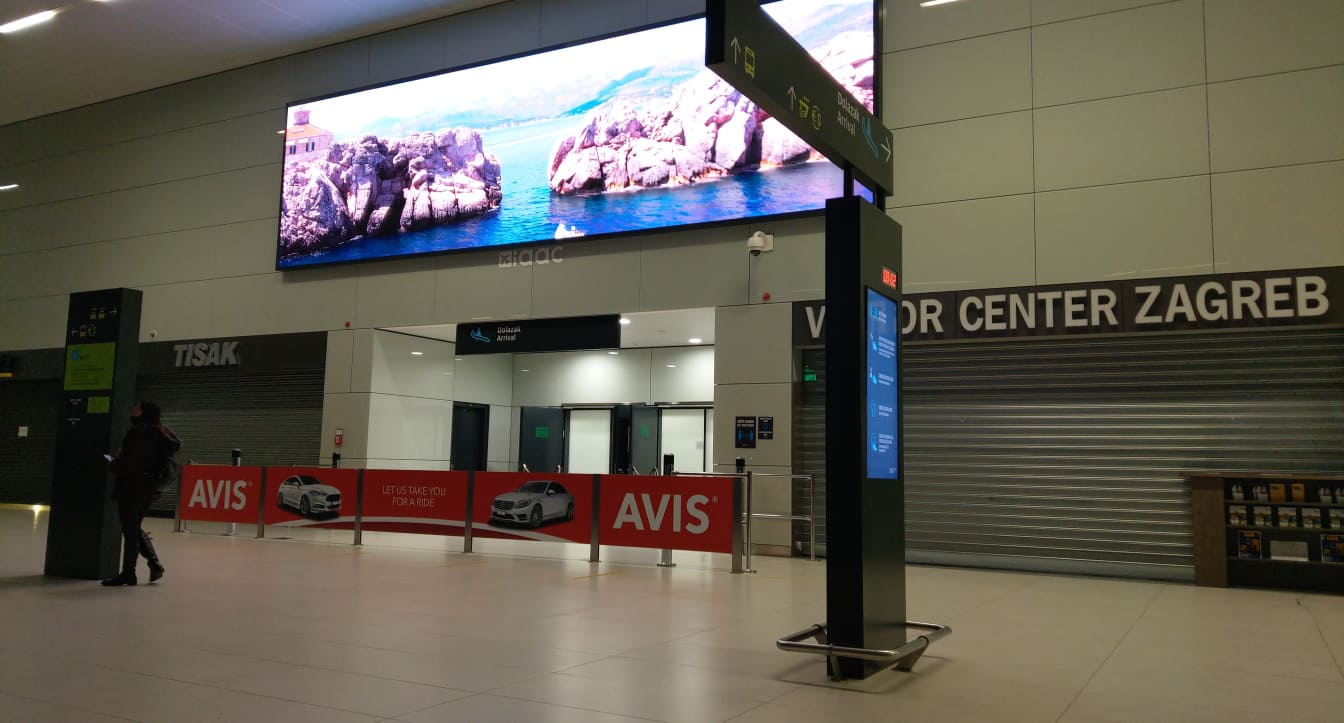
All in all, the process was pleasant given the amount of stress actually involved. Heathrow did excellently, but Croatia and Croatia Airlines could improve on several things. Simply say that online check-in isn't available during lockdown rather than selling basic one-way flights at what truly are often extortionate prices and then issuing a very wrong message when people naturally attempt to check in online.
Croatia is continuing to deal with the pandemic excellently, dragging the infection and death rate down enormously in just a matter of weeks, and it is more than obvious that this 48 hour PCR test requirement (48 hours from the swab having been taken, not from the result!) is in place to make it as difficult as possible and to make even essential travel for citizens and residents problematic. The majority of other comparable countries ask for that time window to be 72 hours, which is much more reasonable and attainable.
Some institutions which do PCR tests in the UK do not expilicitly state that the test which has been done is a PCR test as this is typically implied. If you have a rapid antigen test or a lateral flow test, it will state in your result what that test is, but a ''coronavirus test'' in the UK implies that it is PCR in the vast majority of cases. Of course, some places which do them will write much more on the result, but others won't, and it's impossible for you to know that beforehand.
It would be beneficial for Croatia, people making essential journeys between the two countries and indeed airport staff who have been swept up into this to look more into what the procedures the country they're placing further restrictions on actually look like so as to avoid such confusion.
The 48 hour window is, as stated, a bit of a challenge most of the time. I spoke to a man standing near me at the border who had to travel from Wales to London two days before and pay for a hotel in order to obtain his PCR test at Heathrow on time for his flight, costing him far more time and money than is needed. His test more than likely expired during the border procedure as most of ours had done. Surely it would be better to ask for a window of time a little bit longer rather than to demand something you actually do not allow to be fulfilled because the queues are too long, the rules are too easily misunderstood and there are only two guards working?
It is quite typical of Croatia to ask for something that either doesn't exist, is difficult to acheive or is actually prevented from being fulfilled by Croatia itself.
To end this London to Zagreb saga on a positive note, it was nice to see that there was a level of understanding and flexibility from the border police, and even real friendliness, which offered the message that they are as fed up as we all are with this seemingly endless situation. It's difficult to imagine that for the last seven years I have caught God knows how many flights from London to Zagreb and back again for next to no money and with zero issues (I miss you, British Airways!). Let's hope that if and when that ease of travel returns we'll learn to appreciate it that much more.
For the latest travel info, bookmark our main travel info article, which is updated daily.
Read the Croatian Travel Update in your language - now available in 24 languages.
Olympic Qualifiers: First Croatia Handball Player List Under Coach Horvat Announced
February 9, 2021 - The first Croatia handball player list under coach Horvat has been released ahead of the Olympic Qualifiers next month.
The new coach of the Croatia men's senior national team, Hrvoje Horvat, has published a list of 21 players he is counting on for the Olympic Qualifiers to be held in Montpellier from March 12 to 14, 2021. As is already known, Croatia is in a group with France, Portugal, and Tunisia. The two best national teams from each of the three groups will compete in the Olympic Games in Tokyo. Apart from Montpellier, qualifying tournaments are also played in Berlin and Trondheim.
The player list also includes two well-known names who were not in Egypt at the World Championship - Luka Stepančić, a member of MOL-Pick Szeged, and Domagoj Pavlović, who plays for Melsungen. Both of these players were injured and could not compete in Egypt.
Croatia handball player list:
1. MARIN ŠEGO – MONTPELLIER HB
2. IVAN PEŠIĆ – HC MESHKOV BREST
3. MATE ŠUNJIĆ – US IVRY HANDBALL
4. IVAN ČUPIĆ – RK VARDAR 1961
5. ZLATKO HORVAT – RK METALURG SKOPJE
6. MANUEL ŠTRLEK – TELEKOM VESZPREM HC
7. DAVID MANDIĆ – RK PPD ZAGREB
8. ŽELJKO MUSA – SC MAGDEBURG
9. MARINO MARIĆ – MT MELSUNGEN
10. ILIJA BROZOVIĆ – TSV HANNOVER -BURGDORF
11. MARIN ŠIPIĆ – RK PPD ZAGREB
12. LUKA CINDRIĆ – BARCA
13. DOMAGOJ DUVNJAK – THW KIEL
14. IGOR KARAČIĆ – HC LOMZA VIVA KIELCE
15. MARKO MAMIĆ – SCDHFK LEIPZIG
16. HALIL JAGANJAC – RK NEXE
17. IVAN MARTINOVIĆ – HC HANNOVER -BURGDORF
18. DOMAGOJ PAVLOVIĆ – MT MELSUNGEN
19. LUKA ŠEBETIĆ – TREMBLAY EN FRANCE HANDBALL
20. LUKA STEPANČIĆ – MOL – PICK SZEGED
21. MATEJ HRSTIĆ – RK PPD ZAGREB
Hrvoje Horvat, the men's senior national team coach, on choosing this lineup:
"The skeleton of the national team is in some form as it was in the last two gatherings. We only hope that all the players on the list will be healthy and able to respond. There are no big surprises as far as players are concerned; there is very little time. My right hand on the bench will be Igor Vori, and I will not have a classic assistant coach. Matija Bilušić will sit on the bench as a goalkeeper coach, and I am happy to strengthen the staff with the goalkeeper coach. Two new physiotherapists, Goran Krušelj and Matija Rajnović will deal with this part of the job. A slightly thinner headquarters, but I believe that this is the right path and that we will show it."
When announcing his list of players, Horvat also announced the composition of the new staff. Thus, for the beginning of his term, Horvat will be without a classic assistant. The goalkeeper's coach remains Matija Bilušić, who also performed this task during the World Championship in Egypt. In the future, he will train goalkeepers and sit on the bench next to the coach. The new physiotherapists of the national team are Goran Kruselj and Matija Rajnovic. The rest of the staff remains unchanged. In other words, there are still Dr. Krešimir Rotim, Dr. Tomislav Kukin, director of all Croatia national teams Ivica Udovičić, sports director of men's national teams Igor Vori, who will continue to be on the bench, spokesperson and team manager Ivica Maraš, and technician Zdravko Mirilović.
Coaching staff:
1. HRVOJE HORVAT, COACH
2. MATIJA BILUŠIĆ, GOALIE COACH
3. MILJENKO RAK, CONDITIONING TRAINER
4. GORAN KRUŠELJ, PHYSIOTHERAPIST
5. MATIJA RAJNOVIĆ, PHYSIOTHERAPIST
6. KREŠIMIR ROTIM, MEDIC
7. TOMISLAV KUKIN, MEDIC
8. IVICA UDOVIČIĆ, DIRECTOR OF ALL NATIONAL TEAMS
9. IGOR VORI, SPORTS DIRECTOR OF MEN'S TEAMS
10. IVICA MARAŠ, SPOKESPERSON AND TEAM MANAGER
11. ZDRAVKO MIRILOVIĆ, TECHNICIAN
Source: HRS
To read more about sport in Croatia, follow TCN’s dedicated page.
Hamburg Sends Humanitarian Aid to Quake-Hit Areas of Croatia
ZAGREB, 9 February 2021 - A second convoy with humanitarian aid for people in the Croatian areas hit by a 6.2 magnitude earthquake on 29 December set out from Hamburg for Croatia on Tuesday.
Croatia's consul-general in Hamburg, Kristijan Tušek, said that the Hamburg fire department today sent the emergency medical service in Sisak an ambulance, and the cost of its transport to Croatia had been covered by Croatian business people from Hamburg.
On Monday, the first shipment of humanitarian aid from Hamburg, consisting of tents, toiletries, transformers and other items, arrived at the Civil Protection logistics centre in Jastrebarsko outside Zagreb.
The mayor of the city-state of Hamburg, Social Democrat Peter Tschentscher, expressed solidarity with the residents of the quake-hit areas.
Consul-general Tušek thanked the Hamburg Senate, the Croatian business community in Hamburg and members of the Croat emigrant initiative "Hamburg helps Croatia" for helping in the project with their work and donations.
Around 7,000 residents of Hamburg are of Croat descent.
Parliament to Debate Additional Economic Measures to Relieve Consequences of Pandemic
ZAGREB, 9 February 2021 - Parliament will continue its sitting on Wednesday with eight items on the agenda, including a bill on investment promotion, designed to help alleviate the effects of the coronavirus pandemic.
The government has proposed three more measures to those previously adopted to promote investment, Economy Minister Tomislav Ćorić explained.
Investment subsidies will be expanded to include enterprises that did not have any difficulties until 31 December 2019 but in the period from 1 January to 30 June 2020 faced difficulties in doing business.
Businesses that receive subsidies for investment projects whose implementation coincided with the start of the pandemic will be able to prolong their implementation for one year.
As for obligations taken on prior to 31 December 2019, the loss of jobs in the same or similar activity that has occurred in the period from 1 January 2020 to 30 June 2021 in a beneficiary's facility or project in the common European economic area is not considered transfer within the meaning of the Investment Promotion Act.
Parliament will also debate a government motion to amend the law on the state commission in charge of overseeing procurement procedures.
Lawmakers will also debate a proposal to not allow anonymous complaints against teachers.
"A review of complaints against teachers... has shown that about one-quarter of anonymous complaints are unfounded," Education Minister Radovan Fuchs said presenting the bill on school inspections.


